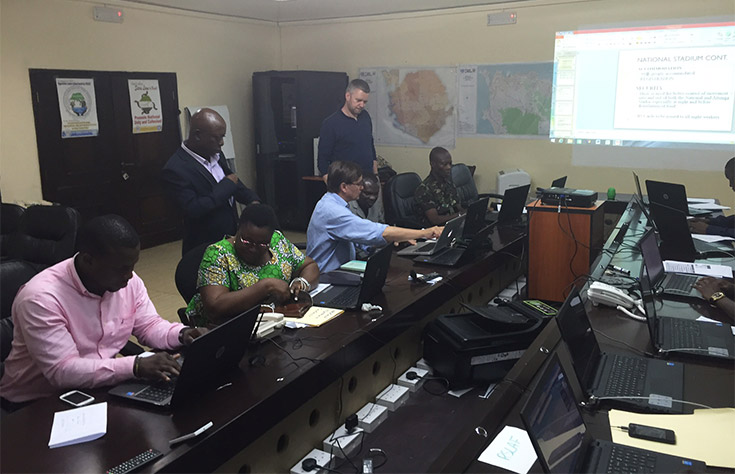Sierra Leone - moving on to recovery
Editorial Advisory Panel Member Robert McAlister, who is in Sierra Leone with the Director of Bournemouth University’s Disaster Management Centre, presents his fourth blog, which looks at recovery efforts.

As part of our BUDMC training delivery programme here, I have had access to a range of senior stakeholders, who have been very generous with their time and information. They have allowed us to attend their meetings and see the inner workings of this current flood response and the ongoing challenges within the recovery phase.
As most crisis and disaster specialists fully appreciate, recovery is probably the most difficult – and potentially the longest and most drawn out – phase, often conducted with partners that are scaling down their participation and support.
This is the challenge now facing the Sierra Leone Government agencies, faced with two stadiums full of displaced people, who need a longer term plan of action.
The current situation is:
-
Roughly 20,000 or more people across Sierra Leone directly affected, the majority of those in Freetown Western District;
-
4,000 displaced persons currently sheltering in the National Stadium;
-
800 displaced persons are in the Attouga Mini Stadium
But if those figures are not enough, a significant number of households are situated in areas experiencing water pollution, owing to water pipes being damaged. This is on top of the ongoing vision and work towards what being termed ‘Zero Ebola’ here.
This puts into perspective just what the authorities are facing.
The proposed recovery plan is a two-staged approach, temporarily taking truly homeless and registered people from both stadiums to a suitable holding location, while a long-term location is made ready. Both sites have been identified and assessed and work has begun to make these ready, slightly behind schedule, but this is no quick and easy task. One contributing factor is budget: Sierra Leone is far from being economically sound, so this could be a sticking point towards a fast resolution.
Obviously this is being discussed and managed at all levels within a multi-agency environment, and this has provided us with an ideal opportunity to carry out training against a ‘live’ crisis.
Being able to work alongside and directly observe and mentor senior co-ordinators in a highly demanding and often stressful time has been invaluable. Obviously our original programme had to change, given we arrived within the first week of the current floods, but that presented us with a perfect opportunity we did not want to miss, so adapted the programme accordingly.
Over the next two months, the last two weeks’ experience will see the teams we are training in far better shape; there is nothing like combining theory into real life practical hands on training. As the military says: “if it ain’t raining, it ain’t training!”
With the forecast showing weeks of rain still to come I feel there are still many risks and hurdles to come, but I’m confident that the teams charged with managing this crisis will rise to the challenge.
Robert McAlister,, 01/10/2015